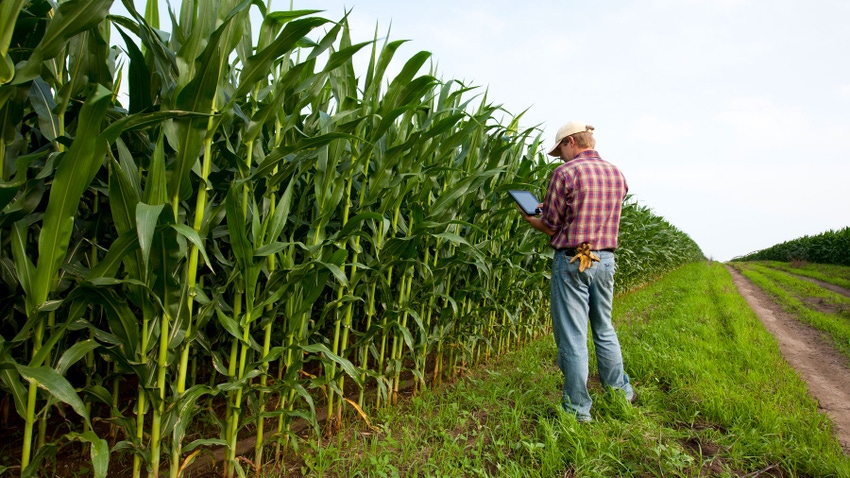December 27, 2023

Earlier in 2023, Bayer and Microsoft announced the creation of the Microsoft Azure Data Manager for Agriculture. But what does it mean for agriculture?
Tucked in one corner of the Bayer exhibit at Agritechnica, Farm Progress connected with Brad Roberts, lead product marketing manager of cloud solutions at Bayer, and Sachi Desai, senior director of strategy for The Climate Corporation. They offered an opportunity to dig into the collaboration and what it means for the future.
“First, this is not a product that farmers will see directly,” Roberts said. “This is a platform allowing other [businesses] to accelerate their development of products.”
The Microsoft and Bayer product — Microsoft Data Manager for Agriculture — is a cloud built around a rich ag-focused dataset, including intellectual property from Bayer. Agriculture has collected vast amounts of information in different formats and structures with little to no infrastructure in place to allow the movement of this data.
With this new cloud platform, the infrastructure is now being built, and some datasets within it are being structured into a standardized format for easier access. Both Bayer and Microsoft can monetize from that infrastructure by licensing it, and models within, to others to use.
In the Data Manager for Ag platform, there is satellite imagery, rich weather data, drone imagery, input from soil sensors, field equipment information and a range of industry standard datasets. For the average farmer, that likely sounds like gobbledygook, but for an ag-focused company, access to this kind of dataset can jump-start development of new ideas and products.
“It’s accelerating what we can do by taking some of the development work off our hands,” Desai said. “Microsoft engineers are much more efficient than we are at working with this kind of data.”
He offers an example of the development of an artificial intelligence model for large land management that would make it easier to develop in-depth reports. That practice, of making sense of piles of data, is made simpler because Microsoft is already good at working with AI. Other companies can now leverage that expertise through this cloud-based system.
“And Microsoft can help develop the user experience in ways we can’t ourselves,” Desai adds. “We’re already working on improving report generation and other tools for the future.”
Bayer is part of that with its Ag Powered Services products that offer tools others can use to develop their own software through licensing. Already, the Ag Powered Services commercial products offer tools including Imagery Insights, Growing Degree Day Calculations and Crop Water Usage Maps. And more are under development.
Those tools, which a farmer would not have direct access to for farm use, become building blocks for developers based on deeper, better designed ag information than a third-party might develop on its own. It’s a way to jump-start development of new products and services.
Putting data to work
The challenge of the ag tech world is the collection of massive amounts of information that are not compatible. The Ag Powered Services business, powered by Data Manager for Ag, aims to standardize those datasets to make it easier for companies to develop new products, and leverage what Bayer calls the “cloud-connected acre.”
From measuring sustainability of specific agriculture practices to linking field information through to consumer companies increasingly interested in sustainability, this new approach offers potential to speed development of products. Food companies, for example, are looking for better information about on-farm practices, but making sense of them isn’t easy. This service, as it evolves into 2024, offers that potential.
The farmer could one day benefit from these new tools, essentially powered by Data Manager for Ag, yet never know that system is working in the background. The key is to turn that mountain of data into useful tools across the industry.
Farmers interested in knowing more about what’s happening can visit agpoweredservices.com and check out the FAQ section at the bottom of the homepage. The promise of making disparate data more useful for agriculture is an important step toward a range of advancements for the industry.
Read more about:
DataAbout the Author(s)
You May Also Like






